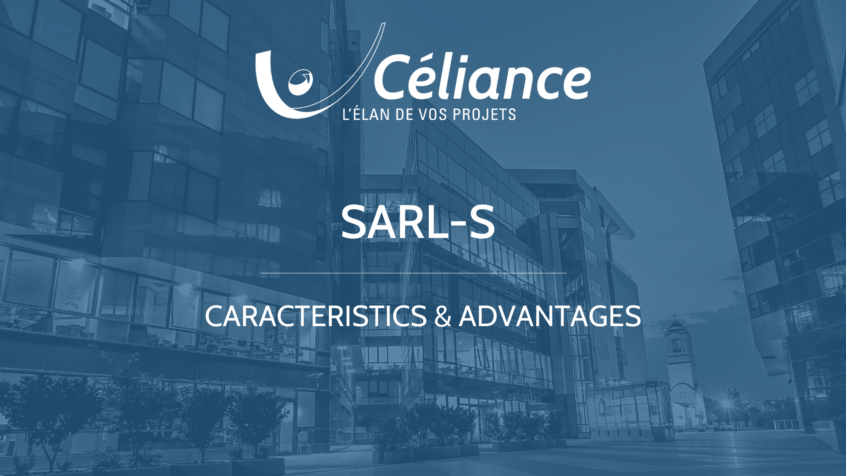Would you like to start your own business but don’t know where to begin?
Céliance is at your side in the entrepreneurial adventure!
Every project is different, but they all follow major stages that deserve your attention and our advice.
SARL-S
The Simplified Limited Liability Company (SARL-S) is a form of commercial company that derogates from certain rules specific to limited liability companies.
Its purpose is to provide immediate access to economic activity by freeing new entrepreneurs from certain constraints they might encounter when setting up an SARL.
Is the SARL-S the better choice for you?
- The SARL-S is reserved for individuals only;
- An interesting alternative, especially for young entrepreneurs and the self-employed.
The SARL-S is an interesting option when :
- You are starting up or testing activities;
- You have limited start-up capital;
- You wish to protect your private assets (the SARL-S allows the division of your private and professional assets).
Key features
- Minimum share capital is 1 EUR (maximum capital 11,999 EUR);
- SARL-S can have between 1 and 100 shareholders;
- An individual cannot be a shareholder in more than one SARL-S.
Accounting :
- Balance sheet;
- Profit and loss account (with appendices);
- Management report approved by shareholders’ meeting.
Management :
One or more individuals, partner(s) or not, appointed by the partners in the articles of association or by a subsequent general meeting, for a limited or unlimited term.
Costs :
- 1€ share capital contribution;
- Tarde and Companies Register publication costs;
- Costs associated with issuing administrative authorizations.
Same characteristics as SARLs with a few exceptions:
- Partners are natural persons;
- An individual cannot be a partner in more than one Sarl-S, except in exceptional circumstances;
- The company’s corporate purpose is restricted to activities for which the manager must obtain a business license.
Advantages
- Minimum share capital is 1 EUR.
- Articles of association need not be filed with a notary. The company can be incorporated by private deed;
- The articles of association must always be published in the Trade and Companies Register (RCS), along with any changes, but the filing and publication costs are lower.
Limits
- The company will be transformed into a SARL if its share capital exceeds EUR 12,000;
- SARL-S shares are registered and cannot be held by legal entities. An individual cannot be a partner in more than one SARL-S;
- SARL-S may not make public offerings of shares or profit shares;
- Contributions in kind are prohibited;
- Partners are obliged to set aside an additional compulsory reserve to compensate for share capital of less than EUR 12,000. A SARL-S must allocate 5% of its net profit to an unavailable reserve fund. This action ceases as soon as: share capital + reserve = maximum amount of the SARL-S’s capital (€12,000). This specific reserve is distinct from the legal reserve.
Main stages in setting up a company
A SARL-S can only be set up to carry out commercial, craft, industrial or professional activities. These activities also require a business permit from the Ministry of the Economy.
- Drafting and signing of articles of association under private deed;
- Apply to the Ministry of the Economy for an business permit;
- Register the SARL-S with the Trade and Companies Register and the Registre des Bénéficiaires Effectifs, in order to receive the final authorization (after receipt of a provisional authorization from the Ministère de l’Economie);
- Register with VAT, social security and tax authorities (AED – CCSS – ACD).
Have a look on our news: click here
Follow our events and news : LinkedIn


